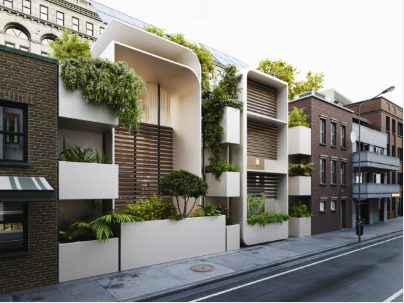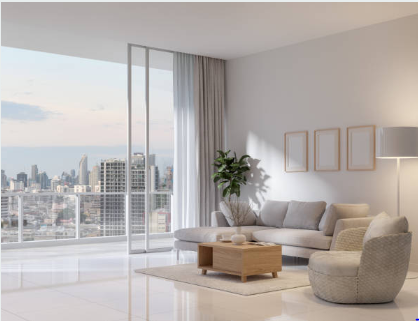In Qatar, owning real estate can be a key step for people wanting to settle down in the country for a long time. There are two main options for residency tied to property ownership: the Permanent Residency Card and the Residency Card. Both offer ways to secure residency, but they come with different perks and requirements. Figuring out which one is right for you can be tricky. This article breaks down the differences between the Permanent Residency Card and the Residency Card to provide a better understanding of options when it comes to owning property and living in Qatar.
Introduction to Real Estate Ownership in Qatar

Real estate ownership in Qatar has been a topic of great interest, particularly for expatriates looking to settle in the country. Qatar offers two main avenues for foreigners to establish a more permanent connection to the country: the Permanent Residency Card (PRC) and the Residency Card.
Understanding Permanent Residency Card (PRC) in Qatar
What is a Permanent Residency Card?
The Permanent Residency Card, commonly referred to as PRC, is a document issued by the Qatari government that grants permanent residency status to foreign nationals residing in Qatar.
Eligibility Criteria for Obtaining PRC
To qualify for a Permanent Residency Card, people must meet specific criteria set by the Qatari authorities, including but not limited to:
- Established contribution to Qatar's development and progress
- Length of residency in Qatar
- Clear criminal record
- Financial stability
Benefits of PRC in Qatar
PRC holders enjoy a range of benefits, including:
- Permanent residency status without the need for sponsorship
- Permission to own real estate properties in Qatar
- Access to public services and facilities
- Employment opportunities without the need for a local sponsor
- Ability to sponsor family members for residency
Overview of Residency Card in Qatar
What is a Residency Card?
A Residency Card, also known as a Residence Permit, is a document issued to foreign nationals living and working in Qatar for a specific duration.
Types of Residency Cards in Qatar
There are different types of Residency Cards in Qatar, including:
- Family Residency Permit
- Work Residency Permit
- Investor Residency Permit
- Real Estate Residency Permit
Eligibility Criteria for Obtaining Residency Card
The eligibility criteria for obtaining a Residency Card vary depending on the type of permit being applied for but generally include:
- Valid employment contract (for work permits)
- Sufficient funds (for investor permits)
- Property ownership (for real estate permits)
- Family ties (for family permits)
Who is eligible for permanent residency in Qatar?
Permanent residency in Qatar is granted to foreign residents who have been living in the country for a minimum of 20 years, possess fluency in Arabic, and maintain a clean criminal record, among other specified criteria. Additionally, authorities will assess candidates' financial stability to ensure they can support themselves and any dependents.
Individuals who have lost their residence permits can obtain a new one through the immigration office. To do so, they must complete an ID form and pay a fee of approximately QAR 200 for the replacement document.
A residence permit is mandatory for all foreign nationals residing or moving to Qatar. While tourists and non-residents can stay in the country according to their visa duration, it is advisable to apply for a residence permit if planning to extend their stay or secure employment in Qatar.
What advantages does Qatari permanent residency offer?
Qatari permanent residency grants several benefits, including the ability to stay abroad for over 6 months and access to education and healthcare for the entire family. Entrepreneurs can establish businesses in various sectors, such as real estate, which boasts a thriving market. Non-Qatari investors can retain 100% ownership of their companies, offering substantial benefits.
Comparison Between Permanent Residency Card and Residency Card
A Permanent Residency Card and a Residency Card serve different purposes and have different features.
A Permanent Residency Card grants its holder long-term residency rights in a country without the need for periodic renewals. It may offer additional benefits, such as the right to work and access to social services. On the other hand, a Residency Card signifies temporary or renewable residency status, subject to regular renewals and more limited rights and privileges.
While a Permanent Residency Card implies a more stable and secure residency status, a Residency Card may be suitable for people who intend to reside in a country temporarily or for a specific period, such as students or temporary workers. Each type of card serves different needs and circumstances, providing varying levels of residency rights and privileges accordingly.
Read Also: How Do I Apply For A Qatar Residence Permit?
Benefits of Residency Card in Qatar
Residency Card holders enjoy certain benefits, such as:
- Legal residence in Qatar for a specified period
- Access to healthcare and education services
- Ability to sponsor family members for residency
- Employment authorization with a local sponsor
Factors to Consider When Choosing Between PRC and Residency Card
When deciding between PRC and a Residency Card, people should consider various factors, such as:
- Long-term residency plans
- Investment goals
- Employment prospects
- Family situation
Steps to Obtain a Permanent Residency Card in Qatar
Application Process
The application process for PRC involves:
- Submitting an application form
- Providing necessary documents
- Undergoing background checks
- Paying applicable fees
Required Documents
The required documents may include:
- Passport and visa copies
- Proof of residency
- Proof of financial stability
- Character certificate
Fees and Charges
The fees for obtaining a Permanent Residency Card vary and are subject to change.
Steps to Obtain a Residency Card in Qatar
Application Process
The application process for a Residency Card includes:
- Obtaining the necessary application form
- Submitting the completed form
- Providing supporting documents
- Completing medical tests (if required)
- Paying applicable fees
Required Documents
The required documents may include:
- Passport and visa copies
- Employment contract (for work permits)
- Property ownership documents (for real estate permits)
- Family relationship proof (for family permits)
Fees and Charges
The fees for obtaining a Residency Card depend on the type of permit applied for and are subject to change.
Conclusion
Both the Permanent Residency Card and Residency Card offer opportunities for foreign nationals to establish a more permanent connection to Qatar. The choice between the two depends on individual circumstances, long-term plans, and goals. Visit Saakin.qa to learn more about Qatar news and real estate trends.
FAQs
Can I own property in Qatar with a Residency Card?
Property ownership rights vary depending on the type of Residency Card. Some permits may allow property ownership, while others may have restrictions.
How long does it take to obtain a permanent residency card in Qatar?
The processing time for PRC applications can vary, but it takes several months from the date of submission.
Can I switch from a residency card to a permanent residency card in Qatar?
In some cases, individuals may be eligible to apply for a Permanent Residency Card after meeting certain criteria, such as length of residency and contribution to Qatar's development.
What is a temporary residence permit in Qatar?
A temporary residence permit is the initial document for foreigners relocating to Qatar.
How long can Qatari residence permits be renewed?
Residence permits in Qatar are renewed every 325 days, or as per the processing time.
How can I check my Qatar residence permit's validity?
Information regarding the validity of Qatari residence permits can be obtained from the Ministry of Interior's official website.
Read More: How to Buy Property in Qatar
Comments
No comments yet.
























